Real Estate Transactions: Legal Vs. Equitable Title
A quiet title action seeks court assistance to establish the plaintiff’s ownership of a property in opposition to a defendant’s claim. This is a dispute over who holds the “title” to the land. However, the quiet title action has a specific limitation: the holder of the equitable title cannot bring a quiet title action against the holder of the legal title. If you are involved in a title dispute, you may be confused about these various terms. This short article is no substitute for the assistance of an experienced California real estate attorney, but we hope this explanation makes the process more intelligible.
LEGAL TITLE
The legal title is what we usually mean when we say you hold the “title”: if you currently hold legal title, you are the owner of the property. If you were to sell your property, for example, a title company would research the chain of title and presumably determine that you are the current owner and therefore legally within your rights to sell the property.
What happens if someone else claims title and perhaps tries to sell your property or prevent you from selling, though? This is what a quiet title action would settle: who really has the right to own and use the property. On the other hand, multiple people can hold legal title to a property together: if one owner wants to sell and the other owners don’t, then this can’t be settled by a quiet title action. In this case, the one who wants to sell might bring a petition to partition.
Title is a legal concept—there is not a real piece of paper called the Title with your name on it. Instead, title is a set of rights to real property that is typically established and transferred via the deed, which defines the bounds of the property and is signed over to you when you buy the property. So a boundary dispute would also not be settled by a quiet title action, but you would similarly look to the deed to dispute not the fact of ownership but rather the bounds of ownership.
EQUITABLE TITLE
With your name on the deed, you have “apparent” ownership and are considered the legally documented owner. However, that doesn’t mean your ownership is complete and unrestricted. This brings us to equitable title: you have a beneficial interest in the property and a right to acquire legal title. In other words, you do not have full ownership of the property, but you have a right to full ownership and a right to the “enjoyment” of the property, but you cannot sell or transfer the property since you are not in complete ownership of the property.
For example, if you are buying a house, as soon as the purchase agreement is executed, you now have equitable title, but you do not have legal title until the seller signs the deed and transfers the property to you. In reality, most purchases are financed by a lender, so legal title transfers to the lender through a mortgage or a deed of trust (see below); however, such “bare legal title” in practice does allow you to sell your property before paying off the loan. Although the bank may seem to own your house on paper, it is understood that this is to secure their interest in case you default on the loan and does not truly give them the right to sell your property at any time or to prevent you from doing so.
One common example of equitable title is in the case of a trust or some other form of guardianship. Property can be placed into a trust that now “owns” the real estate, but only for the benefit of the beneficiaries. So for example, a married couple can establish a land trust and enjoy all the benefits of living on the property without technically owning it. This sort of trust can be set up such that if one spouse dies, the other can continue living on the property without paying estate taxes. (See our previous post on “Land Trusts.”) A trust might also be set up by a parent to hold a property for a child until they come of a certain age. The trust manages the property, holding what is sometimes called “bare legal title,” since the trust does not benefit from the property but rather the holders of equitable title do. There are many reasons to set up a trust: for more on trusts, see “What is a trust?” and “How to set up a living trust in California.”
Understanding the difference between equitable and legal title is especially important in California, because under California real estate law, loans for real estate purchases are secured by a deed of trust. In most ways, the deed of trust is analogous to a mortgage, where the lender holds the legal title, and you may even think you have a mortgage on your home. However, all home loans in California, which adopted this device very early in its history, must be secured by a deed of trust, not a mortgage (for more, see “Deed of Trust vs. Mortgage”).
The deed of trust is just what it sounds like: the trust holds the bare legal title or “nominal title” with the lender as beneficiary, instead of the lender holding the legal title directly, even though you hold the actual deed and equitable title. Once the loan is repaid, you receive full legal title from the trustee and the trust is dissolved. It is the deed of trust that gives the lender the right to foreclose in California and specifically came into use to allow for non-judicial foreclosures.
FRAUD
Once you understand the distinction between legal and equitable title, it should be clear why a quiet title action can’t be brought by the holder of the equitable title against the holder of the legal title. While the holder of equitable title has a “right to the legal title,” that right cannot be enforced through a quiet title action, since this would muddy the practical distinction between the two kinds of title. Where legal title and equitable title are separate, legal title must be transferred through the proper means—such as the dissolution of a trust and the transfer of property to the beneficiaries according to the terms of the trust.
However, there is an important exception to this quiet title limitation: in a case where the legal title was acquired by fraud, the holder of equitable title can use a quiet title action to determine the existence of the fraud and remove the fraudulent claim to legal title on the property. To be more specific, under the pedantic intricacies of real estate law, the quiet title action limitation is designed to ensure that in the case of fraud, the holder of equitable title must actually prove the fraud to receive a judgement, whereas a simple quiet title action would not otherwise require the detailed pleadings that are required to allege fraud (Bacon v. Bacon (1937), 21 Cal. App. 2d 540, 544).
So to allege fraud in a quiet title action, you must be 1) the actual victim of the fraud, meaning title was fraudulently stolen directly from you and you are the holder of equitable title, and 2) the complaint must specifically outline how and why the defendant’s claim to the title is fraudulent. Specificity is the key to the fraud exception.
If you are involved in a quiet title dispute or believe that you are a victim of title fraud, an experienced California real estate attorney can help you understand your rights and the best course of action.


